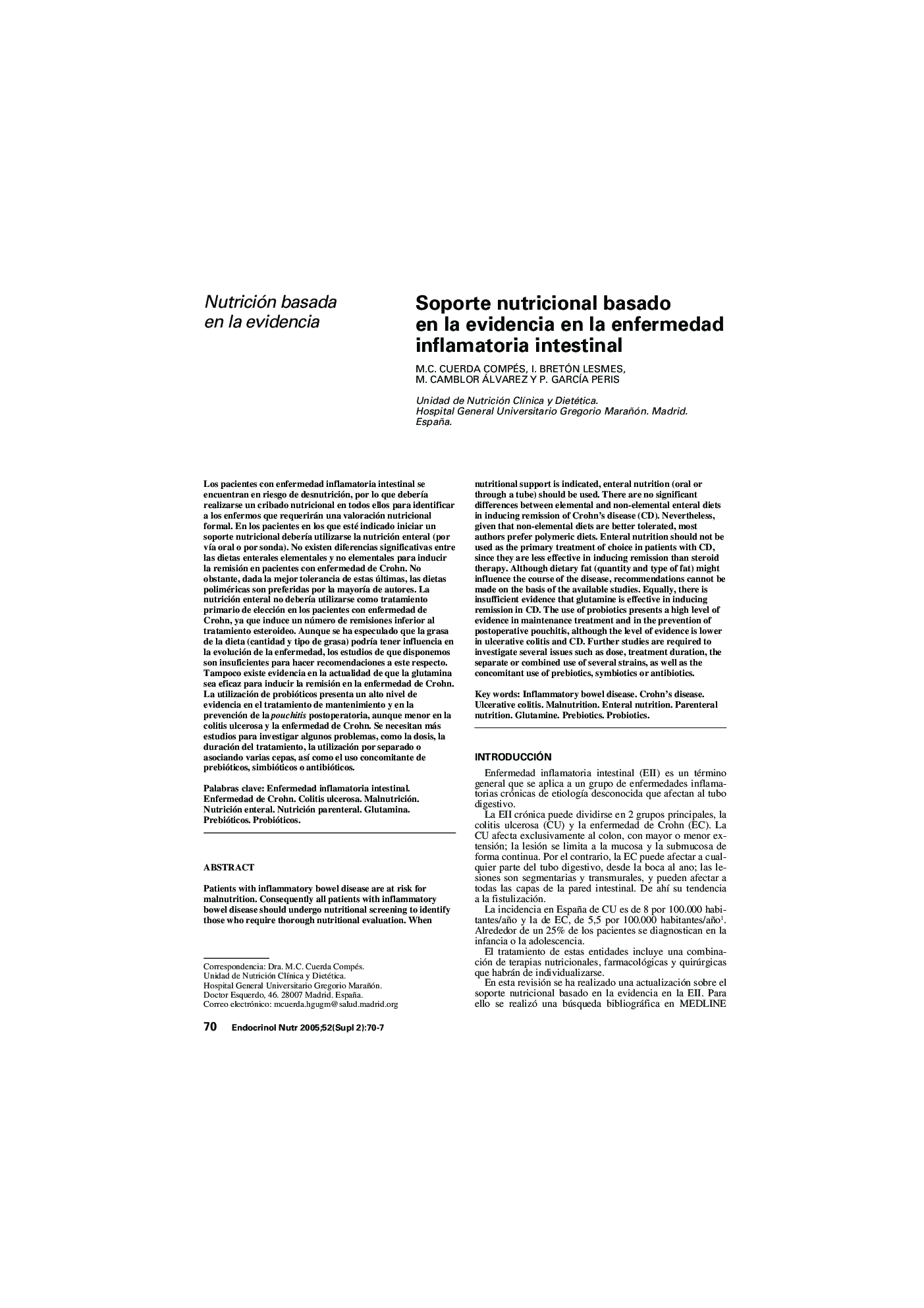| Article ID | Journal | Published Year | Pages | File Type |
|---|---|---|---|---|
| 9102213 | Endocrinología y Nutrición | 2005 | 8 Pages |
Abstract
Patients with inflammatory bowel disease are at risk for malnutrition. Consequently all patients with inflammatory bowel disease should undergo nutritional screening to identify those who require thorough nutritional evaluation. When nutritional support is indicated, enteral nutrition (oral or through a tube) should be used. There are no significant differences between elemental and non-elemental enteral diets in inducing remission of Crohn's disease (CD). Nevertheless, given that non-elemental diets are better tolerated, most authors prefer polymeric diets. Enteral nutrition should not be used as the primary treatment of choice in patients with CD, since they are less effective in inducing remission than steroid therapy. Although dietary fat (quantity and type of fat) might influence the course of the disease, recommendations cannot be made on the basis of the available studies. Equally, there is insufficient evidence that glutamine is effective in inducing remission in CD. The use of probiotics presents a high level of evidence in maintenance treatment and in the prevention of postoperative pouchitis, although the level of evidence is lower in ulcerative colitis and CD. Further studies are required to investigate several issues such as dose, treatment duration, the separate or combined use of several strains, as well as the concomitant use of prebiotics, symbiotics or antibiotics.
Keywords
Related Topics
Life Sciences
Biochemistry, Genetics and Molecular Biology
Clinical Biochemistry
Authors
M.C. Cuerda Compés, I. Bretón Lesmes, M. Camblor Álvarez, P. GarcÃa Peris,
